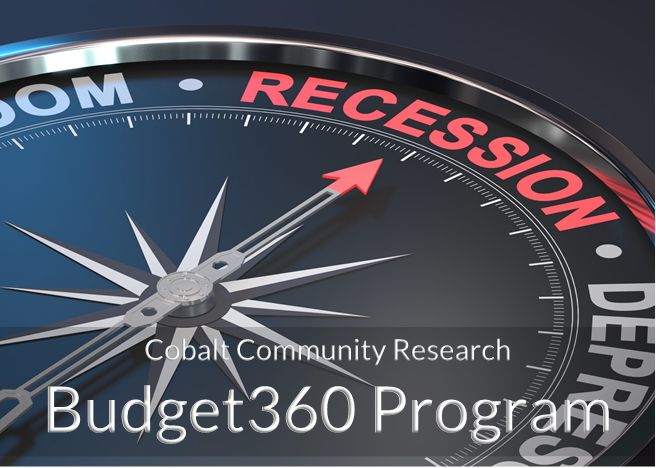|
Myths About the New Normal that Endanger Recovery
|
"The New Normal isn't the Old Normal with less money." |
|
As community leaders start getting their minds around sudden economic change and dealing with Coronavirus, here are 5 myths to reconsider as you adapt to the new normal:
Myth 1: Revenue will bounce back. Fact: Local government revenue will be much lower for several years. While killing projects, implementing a hiring freeze, and cutting all programs by a flat percentage are common initial responses, they are unwise on a medium and long-term basis. Not all services and programs are equal. Each should be evaluated to determine which should be eliminated, scaled back, contracted out, or enhanced with new revenue. Myth 2: Communities have to live within lower revenue projections. Fact: Residents will pay more for specific services they value. Even in times of austerity, there are services and programs that residents are willing to fund through higher taxes or fees. Examples include street repair, walking/biking trails, and public safety. Communities should check in with residents to see what they are willing to pay to preserve or enhance these services. Special millages or dedicated annual fees are two tools that can help fund such services and provide breathing space in the general fund. Myth 3: Communities need to be inclusive. Fact: Pet projects that benefit only one segment of your community are not inclusive. Redefine “inclusive” to be services that provide optimal value for all residents. While there are political factors to consider for special services that focus on specific small groups, the time, money and focus on such special services undermine more general services with greater reach and impact. Myth 4: Communities can only fund essential services such as public safety. Fact: Strengthening public engagement and key quality-of-life elements are essential. While laying off “non-essential staff” like those doing communication and community/economic development may seem like smart belt-tightening, such cuts ultimately slow your recovery. Keeping staff who can focus on community conversations, data analysis, and telling your community’s story to retain and attract residents and businesses can help speed restarting your local economy. Adding these duties to another staff member’s already full plate dilutes focus and effectiveness. Your community needs to remain a great place to live, work and play. Staff must communicate this fact in a disciplined, strategic way. Myth 5: Community leaders must make decisions quickly to be credible and responsive. Fact: You need to take steps to understand and frame the problem, then collaborate on the most beneficial solution. Providing credible leadership and building trust is based on solid communication, data, and building consensus on direction. While some situations require snap decisions, most situations benefit from broader decisions. Build consensus on shared facts, key uncertainties, and assumptions. Identify which actions are needed in a worst case, best case, and likely case scenario. Which actions are needed in all three? Which data will help you determine which scenario you’re experiencing? Which data will help you build a credible foundation from which you can act? The new normal is not the old normal with less money. The new normal means smart, disciplined practices that optimize each dollar. Communities that adapt the most rapidly will be well positioned to prosper in the years ahead. |
Further reading
|
For more information on how Cobalt can help you adapt and thrive in the changing demographic, economic and social environment, visit the Cobalt website or reach out to us by email. Let us know if you need anything at all for benchmarking or research data; we are here for you.
Cobalt Community Research is a national 501c3 nonprofit, non-partisan coalition that helps local governments, schools and membership organizations measure, benchmark, and affordably engage communities through high-quality metrics, mobile geofencing data, surveys, and dynamic population segmentation. Cobalt combines big data with local insights to help organizations thrive as changes emerge in the economic, demographic and social landscape. Explore how we can help by calling 877.888.0209, or by emailing [email protected].
Cobalt Community Research is a national 501c3 nonprofit, non-partisan coalition that helps local governments, schools and membership organizations measure, benchmark, and affordably engage communities through high-quality metrics, mobile geofencing data, surveys, and dynamic population segmentation. Cobalt combines big data with local insights to help organizations thrive as changes emerge in the economic, demographic and social landscape. Explore how we can help by calling 877.888.0209, or by emailing [email protected].






